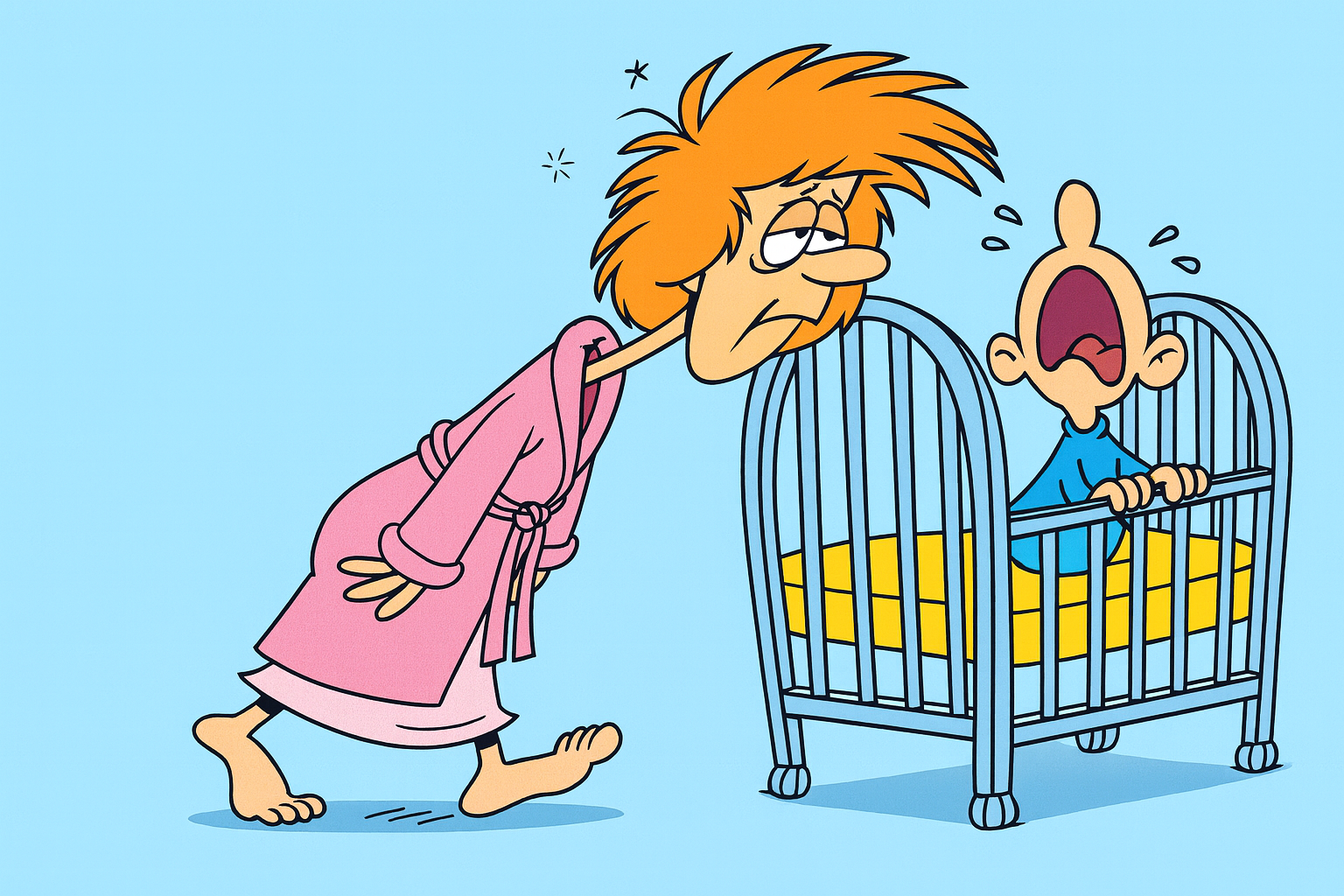Many parents ask this question. In the first months – up to around 3–4 months – many babies sleep surprisingly well. Some nurse around 9 p.m. and then sleep until about 5 a.m. Parents feel lucky and assume it is natural that as the baby grows, they will sleep longer stretches at night.
That’s why it comes as such a shock when their baby suddenly begins waking up more often than during the newborn phase. Society still holds on to the belief that babies should sleep longer as they grow. Unfortunately, this misconception has undermined many mothers’ confidence and has led to early weaning, formula supplementation, and decreased milk supply.
At this point, many mothers worry:
- Do I not have enough milk?
- Did I do something wrong – spoil my baby – and now everything is ruined?
- Will this always be the case, with no peaceful nights ahead?
Possible Reasons for Night Waking
- Daytime feedings are shorter because the baby is easily distracted. They make up for it at night.
- Teething pain can wake babies. Breastfeeding is soothing and even has mild pain-relieving effects.
- Vaccinations or illnesses can disrupt sleep patterns temporarily.
- Growth spurts may increase nighttime wakings for several days.
- Rapid motor development: babies may practice new skills even in light sleep.
- Separation anxiety: babies wake to check if their mother is still nearby.
- Medical issues such as reflux or food allergies can play a role.
- If someone else cared for the baby during the day, they may crave closeness with mom at night.
- New experiences like travel or family visits can make sleep more restless.
Interestingly, the risk of Sudden Infant Death Syndrome (SIDS) is highest between 3–5 months. Babies in this age group sleeping more lightly and waking easily is likely a built-in protective mechanism.
What Does Not Help?
- Trying to overfeed the baby at bedtime. Hunger is usually not the main reason for waking.
- Preventing naps during the day. This does not improve nighttime sleep.
- Sleep training by letting the baby cry it out. Research shows this can harm emotional development and trust.
What Does Help?
- Simply knowing that this is normal can be a huge relief. It doesn’t mean you lack milk or made mistakes.
- Co-sleeping may help if it feels safe and right for the family. Many mothers sleep better this way.
- Feeding at night is fine. It calms the baby, eases pain (like teething), and helps them fall back asleep.
- Rocking and comforting can also work – and fathers can help with this.
- Consult a pediatrician if you notice symptoms pointing to illness, allergy, or reflux.
Final Thoughts
Parenting is never easy. Some babies sleep more easily, others less so. But everything passes – even the tough stages. And bad sleep habits eventually fade too.
👉 If you feel you need extra support, don’t hesitate to reach out a lactation consultant.
Wishing you strength and happy parenting! 🙂



